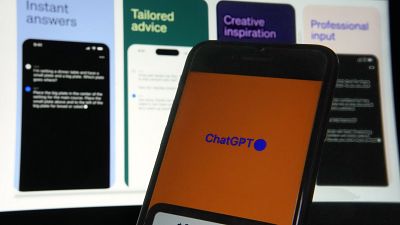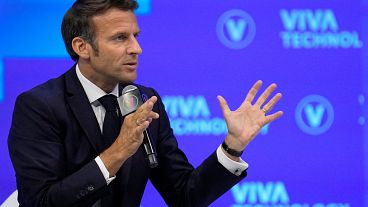The UN chief called for coordinated international action on disinformation and artificial intelligence.
The spread of hate and lies online is causing "grave global harm", fueling conflict, threatening democracy, and undermining efforts to address public health and climate change, Antonio Guterres warned on Monday.
The UN secretary-general said that while the world should take warnings about artificial intelligence seriously, people should not forget that digital platforms are already being used to spread disinformation.
"This clear and present global threat demands clear and coordinated global action," Guterres said at a press conference to discuss a policy brief on the issue.
He added that he plans to appoint a scientific advisory board in a few days, and an advisory board on artificial intelligence later this year.
Guterres also said he would support an international watchdog on artificial intelligence, modelled like the International Atomic Energy Agency.
"Around the world, some tech companies have done far too little, too late to prevent their platforms from contributing to violence and hatred," Guterres added.
He said that the UN will develop a code of conduct for information integrity on digital platforms ahead of a Summit of the Future next year.
What will the Code of Conduct contain?
The UN released proposals in preparation for a new code of conduct.
They include a commitment by governments, technology companies and others to stop using or supporting disinformation and a pledge to create a free and independent media landscape.
They also want common protocols in times of conflict or social tension as well as global consistency so that disinformation is not worse in certain languages but not in others.
But when Guterres was asked about whether governments and technology companies will take steps to make digital platforms safer, he replied: "That's the question I ask myself."
“We are dealing with a business that generates massive profits, and we are dealing also in some situations with governments that do not entirely respect human rights, so this is a constant battle — and in this constant battle, we must mobilise all those that are committed to information integrity in digital platforms,” he said.
'Voluntary codes failed to rein them in'
Heidi Beirich, the co-founder of the Global Project Against Hate and Extremism, agreed that even though it's a positive step that the UN is calling for international solutions to this global problem, its code of conduct won't likely be sufficient to stop the torrent of false and hateful information online.
“The fact of the matter is that voluntary codes, including the companies' own terms of service on these issues, have failed to rein them in,” Beirich said.
“The problem for the UN is they can't do what it seems is going to have to be done to deal with this problem, which is basically legislation.”
Other global groups and governments are looking into regulating artificial intelligence, as the new technology has flourished since the release of ChatGPT.
The European Union is preparing an Artificial Intelligence Act to protect against threats to health and safety and protect fundamental rights.
Guterres said the UN would try to be in the centre of the networks and movements created to deal with AI.
“It also requires the commitment of the platforms themselves, and of the AI creators themselves," he said, “but we will do our best to be a platform where everybody can be together in order to make this agenda advance positively.”



